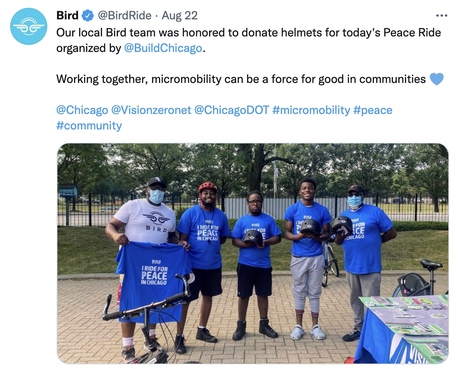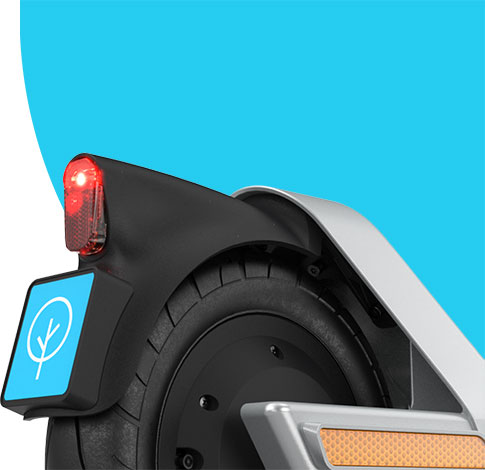Scooters will now be a long-term part of Chicago’s transportation network.
The City Council approved an ordinance that will allow up to 12,500 electric scooters to operate in Chicago beginning in the Spring of 2022, with 6,000 operating on Day One. This includes, for the first time, Downtown, which had been excluded from the city’s two previous pilot programs. Scooters will be available from 5 am until midnight, and will utilize a lock-to system similar to the ones Bird has implemented in cities like San Francisco and Washington, D.C.
“We believe that the e-scooters offer an affordable, convenient and environmentally friendly way for Chicagoans to get around the city,” said Kevin O’Malley, deputy commissioner of the Department of Transportation.
One key staple of the new program will be new technologies designed to prevent riders from using scooters on Chicago’s sidewalks. Earlier this week, Bird unveiled our cutting edge Smart Sidewalk Protection currently being tested in San Diego and Milwaukee. The state of the art technology combines a high-precision, sensor-fusion module co-developed with the GPS/GNSS positioning experts at u-blox and centimeter-level sidewalk mapping to deliver the most advanced sidewalk riding detection and prevention available.
Bird’s industry-first Smart Sidewalk Protection would provide Chicago with a powerful resource to help ensure scooters are used correctly during the City’s first long-term scooter program, which is a part of CDOT’s Strategic Plan that was developed in the wake of the pandemic to help address long-standing issues related to equity in the transportation system.
New Survey Data Show Strong Benefits of Bird Scooters in Chicago
According to recent survey data gathered from Bird riders in Chicago, the long-term scooter program has the potential to bring significant benefits to city residents and local businesses. These include:
- Increased likelihood of shopping at local businesses
94.9% of the nearly 500 survey respondents noted that access to Bird made them more likely to visit a local business. - Improved multimodal transportation access
79.2% of survey respondents used Bird to connect to or from another mode of transit some or most of the time. Of these respondents, 68.9% used Bird to connect to a train or bus. - Decreased dependence on gas-powered cars
36.1% of survey respondents said that they used Bird scooters to replace a trip that otherwise would have been made by personal car or ride-hailing.
Bird was immensely proud to serve the mobility needs of riders in Chicago during the first two pilot programs. We strongly support the City’s focus on equitable transportation access, and in December of 2020 we were thrilled to report that Bird ridership in Priority Areas located in Chicago’s south and west sides jumped from 12.5% in 2019 to 37.6% in 2020.
Even when our vehicles are not on the ground, our locally-based Chicago team partners regularly with community groups like the Business Leadership Council, BUILD Chicago, Streets Calling Bike Club and the Greater Auburn Gresham Development Corp to help put micromobility to work for Chicagoans.
To learn more about our ongoing commitment to Chicago and over 300 city partners around the world, subscribe to the Bird Cities Blog.


